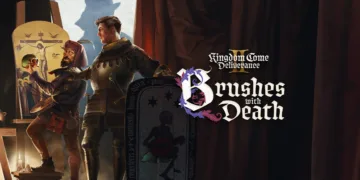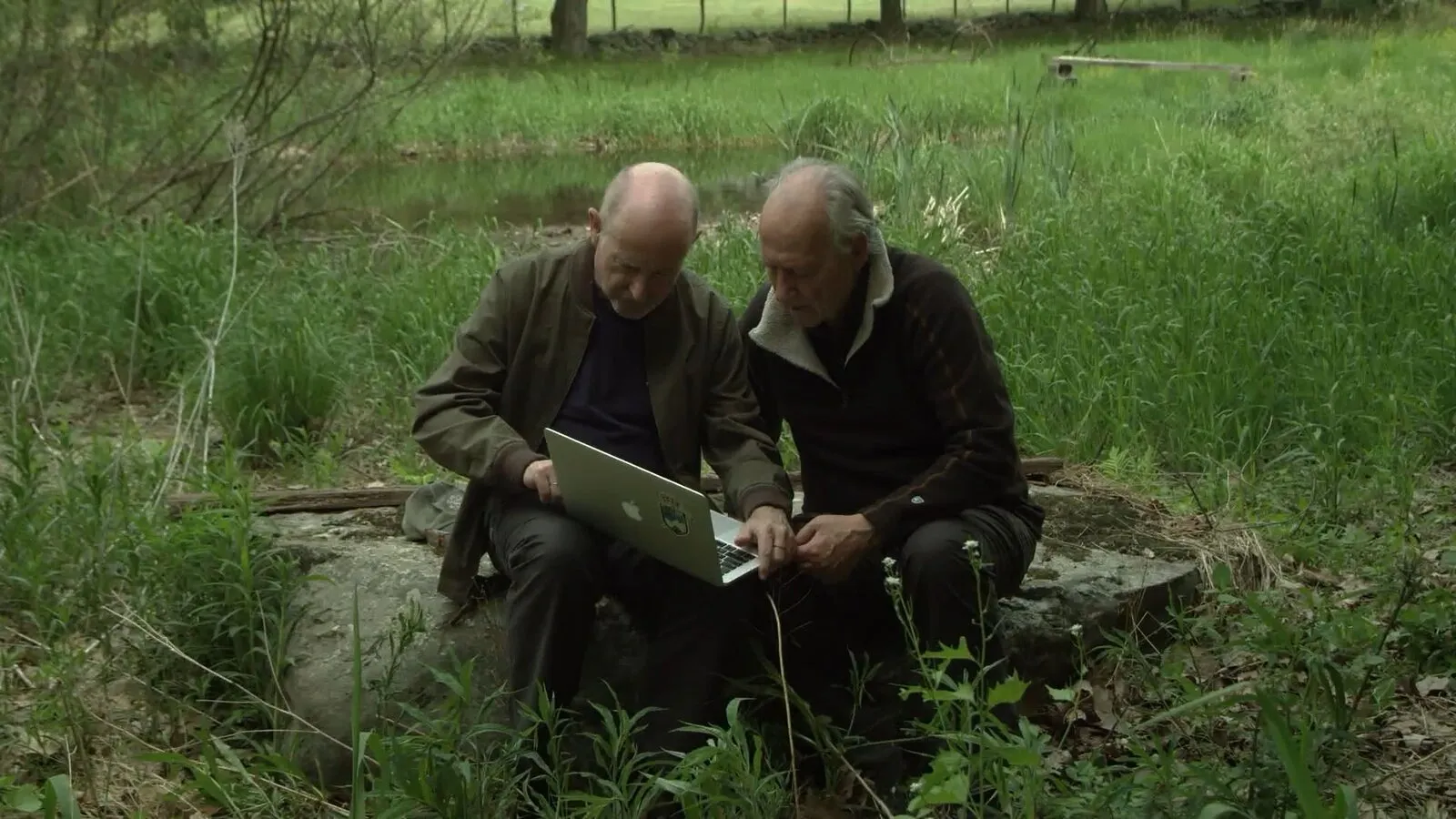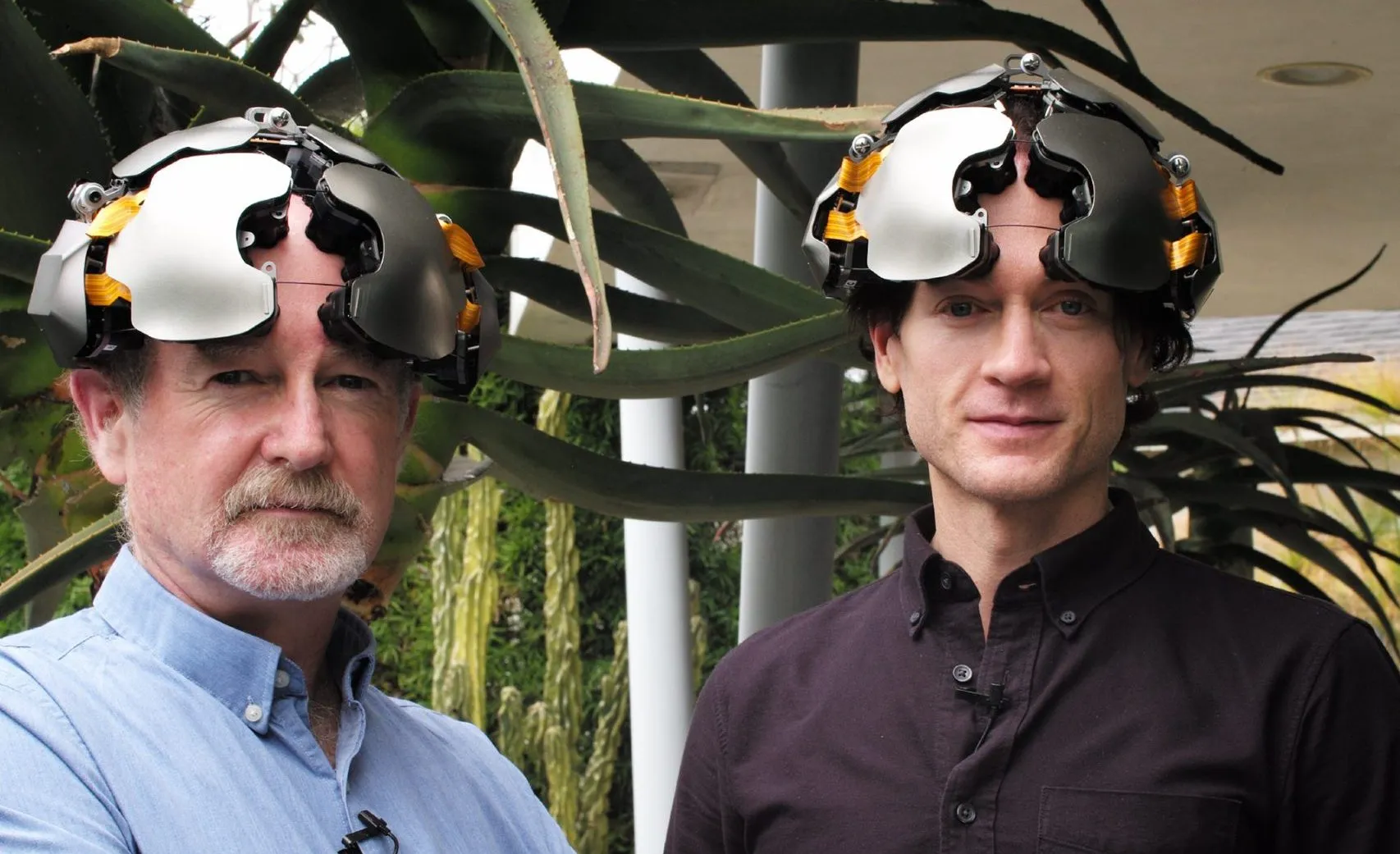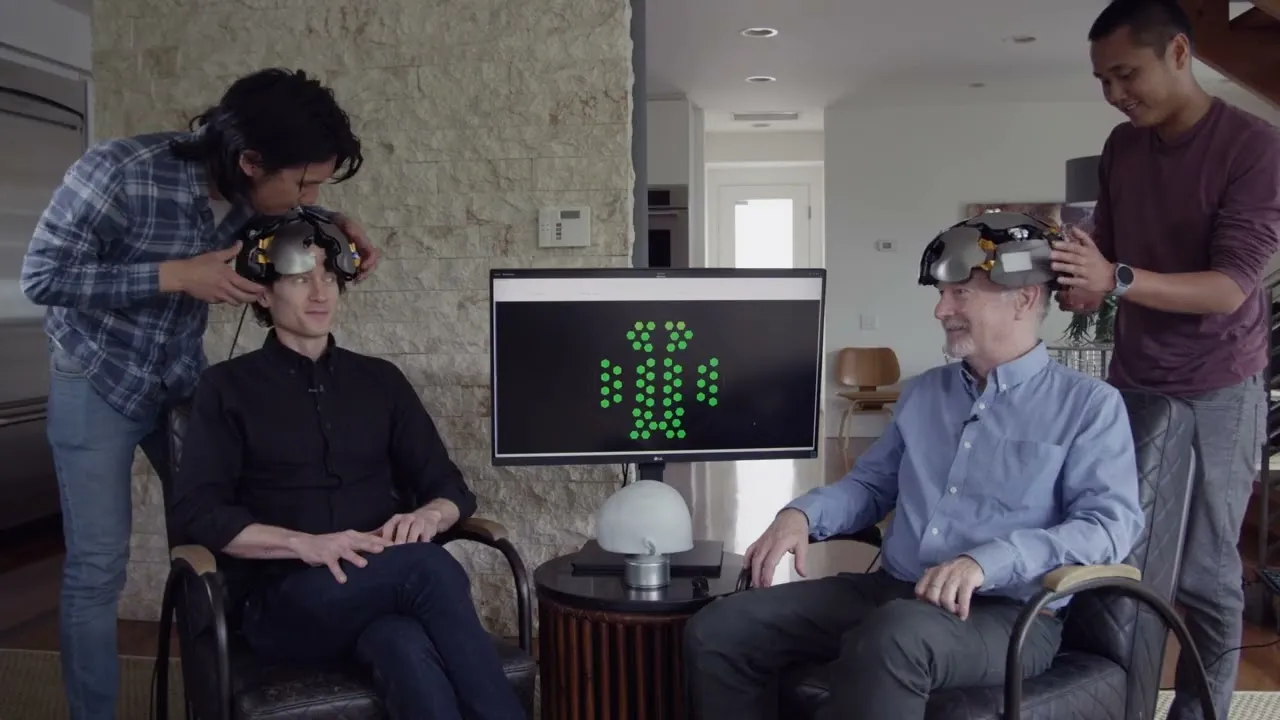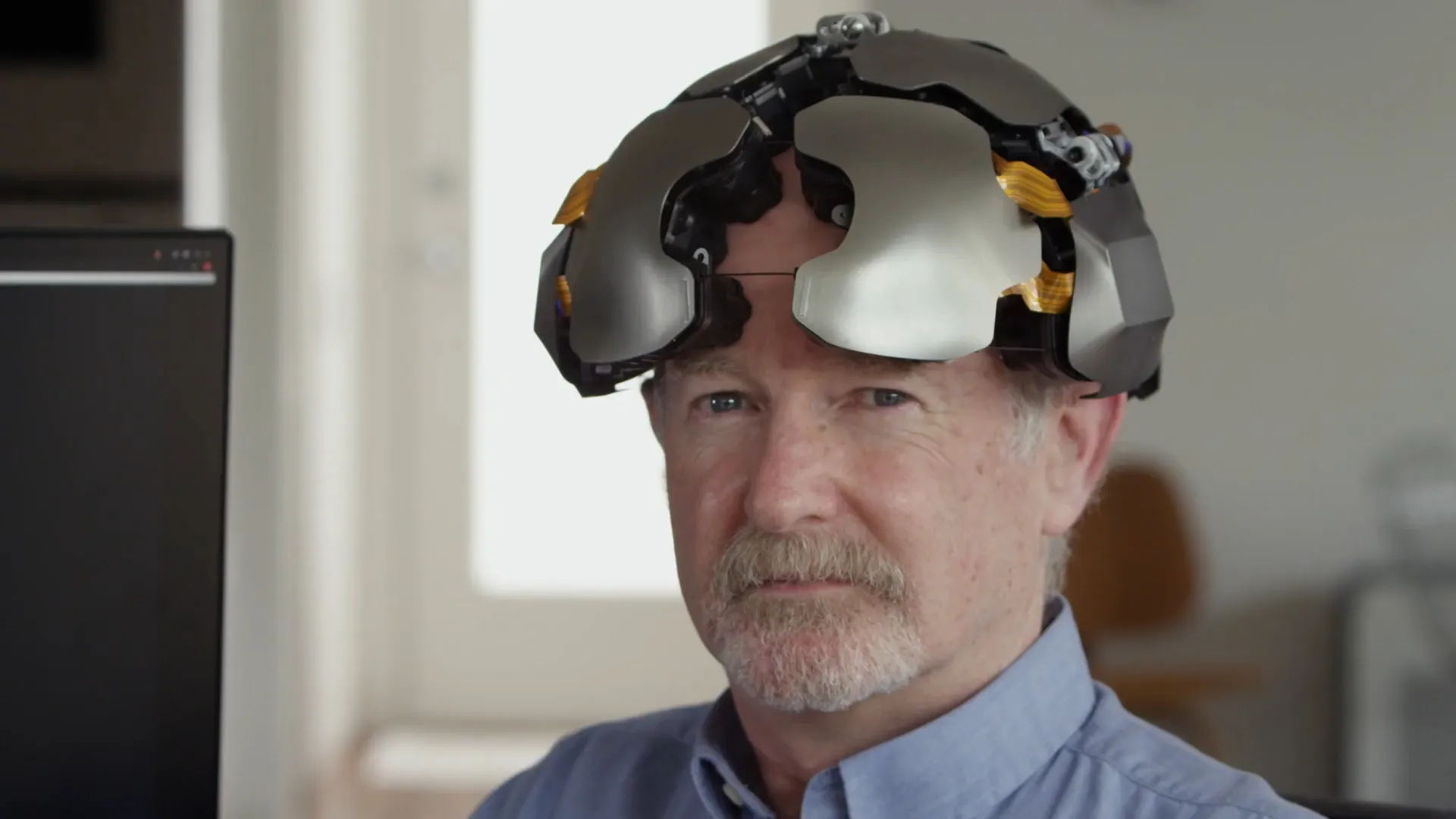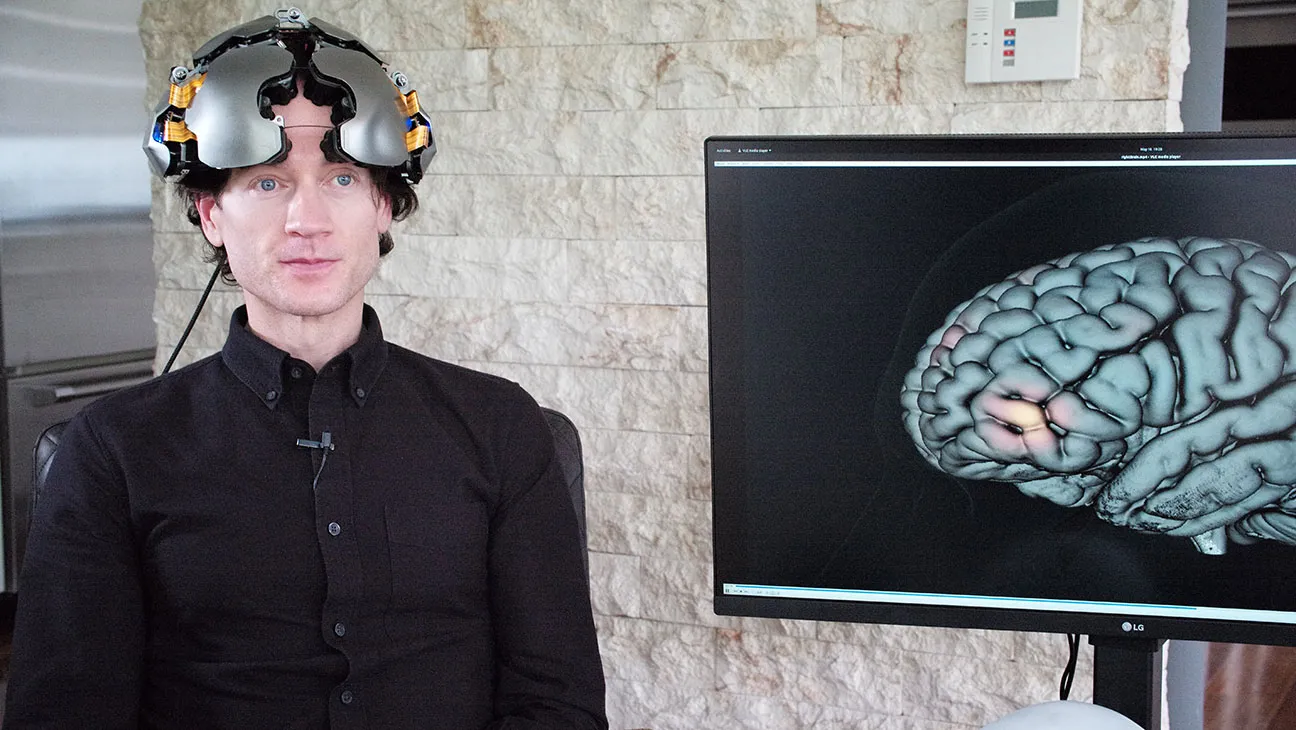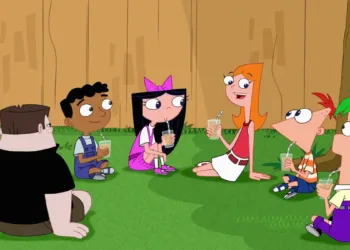Werner Herzog’s Theater of Thought takes us on an ambitious journey through the complex tunnels of the human brain, a familiar and profoundly mysterious terrain. This documentary, infused with Herzog’s distinctive blend of curiosity and philosophical inquiry, encourages audiences to explore the frontiers of neuroscience and neurotechnology.
Here, we see a tapestry of cutting-edge research and speculative musings in which the mechanics of neurons and the essence of consciousness intersect. Herzog, the intrepid observer of human experience, expertly navigates this complex landscape, leading us through interviews with scientific geniuses, each of whom grapples with the inexhaustible depths of their discipline.
Theater of Thought’s significance extends beyond its scientific inquiry; it addresses existential concerns that have plagued humanity for generations. What exactly does it mean to think? To feel? As Herzog investigates the implications of our changing understanding of the mind, he reminds us of the fragility of our existence. His legacy as a documentarian is one of introspection, making us confront the darkest aspects of our minds.
In a world increasingly dominated by technology, Herzog’s exploration serves as a sobering reminder of the delicate balance between progress and the degradation of our humanity. This film encourages us to ponder not only the mechanics of thought but also the essence of what it means to be human in an age on the verge of profound change.
Herzog’s Odyssey: The Exploratory Narrative Style
In Theater of Thought, Werner Herzog appears as both a guide and a seeker, his voice a haunting melody that cuts through the complex maze of scientific inquiry and existential contemplation. Herzog’s narrative approach is a tapestry of curiosity and amazement, with each thread carrying the weight of his philosophical reflections.
His characteristic Germanic cadence lends an uncanny solemnity to the film as he navigates the arcane worlds of neuroscience, pulling spectators into an intimate yet profound dialogue. Herzog’s quest for understanding infuses the narrative, translating abstract principles into exploring the human condition.
However, this journey is not without its quirks. Herzog’s amusing questions, such as “Do fish have souls?” add fun to the film, inviting amusement amidst the grave topics of consciousness and identity. This interplay of humor and seriousness is a delicate balancing act, allowing the audience to grapple with the follies of existence while considering the implications of technological advancements.
In one moment, he can be probing the depths of fear with a neuroscientist, and in the next, he might be jokingly asking if lab mice can suspend belief. Such absurd but genuine questions illuminate the boundaries of scientific understanding, compelling his interviewees and the audience to confront the unknown.
Herzog’s ability to combine the playful and the profound results in a rich tapestry of thought. It expresses the complexities of the mind while allowing for times of uncertainty and introspection. In this labyrinth of inquiry, the absurd and serious coexist, reflecting the fundamental nature of human experience.
Navigating the Abyss: The Frontiers of Neuroscience and Neurotechnology
Werner Herzog’s Theater of Thought dives into the complex network of neuroscience and neurotechnology, showing advancements that blur the line between science and the metaphysical. The film depicts a world in which brain-computer interfaces emerge as both marvels of creativity and signs of existential uncertainty.
These technologies offer to unravel the essence of thought, but they also invite us to confront troubling questions: What exactly does it mean to have a thought? Can consciousness be quantified, or does it escape the grasp of empirical inquiry?
Herzog’s exploration is more than just a list of scientific accomplishments; it is a profound reflection on the implications of these advancements. The film highlights the delicate balance between scientific potential and ethical quandaries as he interacts with top neuroscientists.
The ability to manipulate thought and behavior raises troubling questions about control and autonomy, pushing viewers to ponder the fragility of our identities in a world where algorithms and artificial intelligence are becoming more prevalent. Herzog’s questions ring with unsettling urgency: Are we only puppets in a vast experiment, our thoughts no longer our own?
Furthermore, Herzog skillfully weaves scientific inquiry threads into the fabric of creative expression. He believes that the exploration of consciousness is not only the domain of scientists but also of artists, poets, and dreamers. By drawing connections between the cerebral and the creative, he encourages us to evaluate how our understanding of the mind influences our artistic attempts.
In a sad moment, he considers the potential obsolescence of traditional storytelling in the face of neurotechnology, pondering whether the act of filmmaking itself may become a relic of a bygone period, overshadowed by the immediacy of thought-reading technologies.
This intersection of science and art is filled with tension as Herzog challenges us to confront the implications of our technological ambitions. Each revelation serves as both a beacon of hope and a sad reminder of the unknown areas we are entering—territories that have the potential to redefine what it means to be human.
Encounters with Minds: Insights and Anecdotes
Werner Herzog’s Theater of Thought brings together an extraordinary cast of professionals, each of whom is a luminary in the enormous field of neuroscience and neurotechnology. Among them is Rafael Yuste, a key person whose study focuses on the complexities of the brain’s neural networks.
Yuste exemplifies the intersection of ambition and inquiry as co-director of the BRAIN Initiative, working to illuminate the mysteries of the mind. His appearance in the film serves as a beacon of hope, but it is tinted with the shadows of ethical difficulties that come with such profound exploration.
Along with Yuste, viewers meet a diverse group of scientists, including Christof Koch, whose work on consciousness forces us to confront the basic nature of our existence. Koch’s observations are consistent with Herzog’s thematic preoccupations, as he articulates the complexities of fear and emotion embedded in our neurological circuitry. Each expert provides a unique perspective on the evolving narrative, but together, they create a tapestry rich in uncertainty and philosophical inquiry.
The interviews are punctuated with striking statements that reverberate in the mind. One scientist comments, “We are not just our brains; we are our connections,” a notion that echoes throughout the film, suggesting a close relationship between individual identity and group experience. Herzog frequently uses personal experiences to show the human side of these intellectual pursuits. For example, when explaining the mechanics of fear, Koch describes a moment of vulnerability, a near-drowning experience that forever changed his understanding of survival and the innate reflexes that control us.
These narratives and Herzog’s penetrating inquiries provide a more in-depth analysis of the human psyche. The scientists’ candid views highlight the fragility of our understanding, reminding us that underlying every empirical achievement is a profound existential inquiry. Herzog captures their uncertainty as they grapple with the implications of their work, inviting the audience to join in this communal reflection on what it means to be human in an age when our very thoughts may be scrutinized.
Dark Reflections: Philosophical and Ethical Implications
In Theater of Thought, Werner Herzog explores the uncomfortable ethical environment of neuroscience, where rapid technological advancement raises profound problems about privacy and autonomy. Brain-computer interfaces are becoming more advanced, threatening to redefine the boundaries of individual identity. Herzog’s questions ring with disturbing urgency: What does it mean to be oneself in a world where thoughts may be extracted, controlled, or implanted?
As the line between human agency and technology intervention blurs, inviting us to ponder the implications of handing over our deepest thoughts to the manipulations of algorithms, the whole essence of autonomy hangs in the balance.
Herzog’s philosophical views reverberate throughout the film as he considers the nature of thought and existence itself. He invites audiences to confront the existential dread that comes with these advancements: if our thoughts and emotions can be decoded and engineered, what remains of humanity? The film’s exploration of consciousness becomes more than just an academic exercise; Herzog encourages us to examine the basic fabric of our existence.
The potential implications of future technologies haunt the narrative. Herzog’s speculations elicit a sense of gloom, suggesting that our quest for understanding may lead us to a dystopian society where cold, mechanistic interpretations of human experience overshadow creativity and imagination, and mechanistic interpretations of human experience overshadow creativity and imagination. In this brave new world, one can’t help but worry if we’ll appreciate our inherent complexities or succumb to the sterile seduction of quantified thought.
Shadows and Light: Visual Style and Directorial Choices
In Theater of Thought, Werner Herzog creates a visual world that reflects the complexities of the mind he wishes to investigate. The film has a stark, almost austere design, with subdued tones and dismal settings that induce a sense of introspection.
Herzog’s use of settings, which frequently contrast clinical laboratories with tranquil nature vistas, establishes a dialogue between the antiseptic world of scientific inquiry and the chaotic beauty of human experience. The interviews occur in locations that reflect the interviewees’ minds: brilliant but often overshadowed by uncertainty.
Herzog’s cinematic skills elevate the film’s conceptual depth, making each interaction a visual meditation on consciousness. Close-ups of the interviews reveal their emotional states, allowing moments of vulnerability to permeate the intellectual discourse. In one moving scene, the camera lingers on a scientist’s face, illustrating the tension between knowledge and fear of its implications.
These creative choices interest audiences of any age and urge them to reflect on the philosophical quest at the heart of the narrative. As Herzog expertly weaves the visual and existential, each frame resonates with the unsettling inquiry into what it means to think, feel, and ultimately exist in an age of tremendous technological growth.
The Emotional Landscape: Resonance and Reflection
Werner Herzog’s Theater of Thought generates a profound emotional response by weaving together threads of personal stories and expert insights to create a rich tapestry of human experience. Each narrative, whether a scientist’s anecdote of discovery or a reflective moment of vulnerability, serves as a conduit for empathy from the audience. Herzog’s ability to convey the emotional weight of these meetings elevates abstract scientific notions to visceral, relatable experiences.
The room appears to shrink, and the spectator is dragged into the labyrinth of their psyche, battling with the same worries and uncertainties, when a neuroscientist describes a moment of existential crisis prompted by their research.
Herzog’s exploration goes beyond the empirical; it taps into our communal concerns about identity and existence in a rapidly changing world. The film has an emotional intensity that stays long after the credits roll, inspiring introspection about the nature of consciousness and the fragility of the self.
Herzog’s foray into these murky waters cements his legacy as a troublemaker in documentary filmmaking. His investigations challenge the intellect and the heart, urging us to confront the difficult facts about our minds. In this emotional setting, Herzog urges us to explore the depths of our shared humanity, reminding us that the quest for understanding is as much an emotional as an intellectual voyage. Each picture and word serves as a mirror that reflects the complexities of our existence, leaving us to ponder the implications of our thoughts and the essence of ourselves.
The Review
Theatre of Thought
Theater of Thought is a frightening exploration of consciousness that skillfully combines scientific inquiry with profound existential themes. Herzog's superb storytelling and evocative imagery urge audiences to grapple with the complexities of the human mind, leaving an imprint on our understanding of identity and autonomy. The film strikes a deep chord with its intimate interviews and philosophical thoughts, urging us to confront the darker implications of technological advancements. Herzog's legacy as a provocateur shines through in this thought-provoking documentary.
PROS
- Profound exploration of consciousness and identity.
- Engaging interviews with leading experts in neuroscience.
- Visually striking cinematography that enhances thematic depth.
- Thought-provoking philosophical inquiries that resonate with viewers.
- Herzog's unique narrative style blends emotion with intellect.
CONS
- Some viewers may find the pacing slow.
- The dense subject matter could be challenging for those unfamiliar with neuroscience.
- Occasional moments of ambiguity may leave audiences craving clearer conclusions.


































